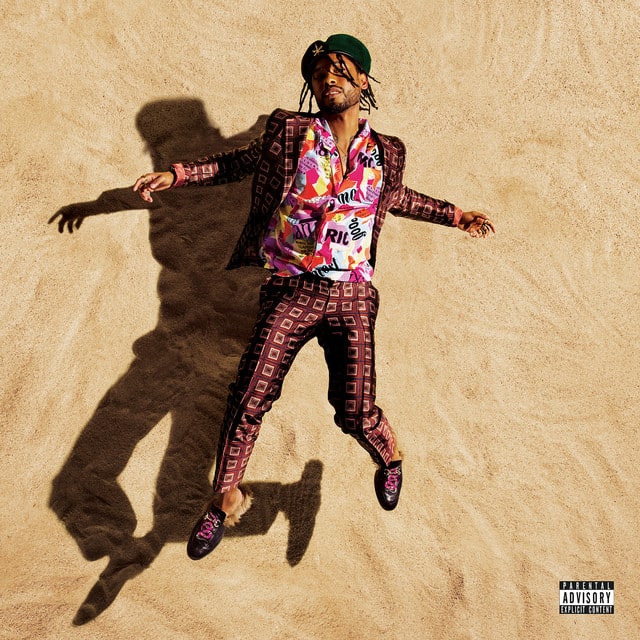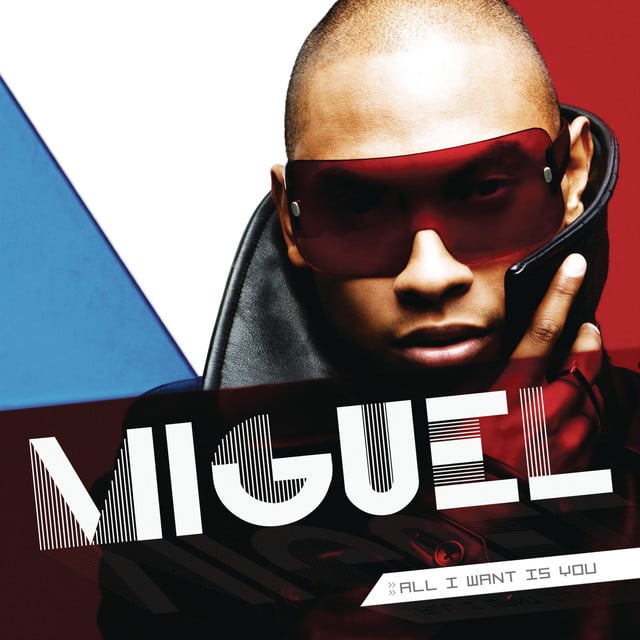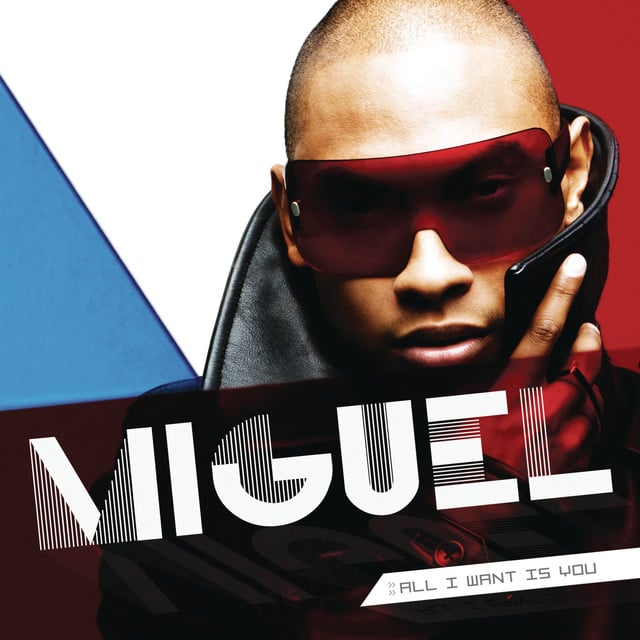Released: 2017
Label: ByStorm Entertainment/RCA Records
Featuring: Rick Ross, Travis Scott, QUIN, Kali Uchis, J. Cole, Salaam Remi
Los Angeles native Miguel Pimentel, better known by his first name ‘Miguel,’ is an artist who has consistently challenged the status quo of R&B with his unique blend of soul, funk, electronic, and rock influences. His fourth studio album, ‘War & Leisure,’ released in 2017, is a melodic joy ride that intertwines these influences with a strong dose of 21st-century anxieties, illustrating his creative prowess in a more political light.
‘War & Leisure’ stands as an unforgettable album that brilliantly deals with the pressures of modern life with the pursuit of pleasure. It’s a kaleidoscopic rendition of Miguel’s internal world, offering songs that are as deeply intimate as they are universally relatable. Each track exhibits a sublime fusion of blissful melodies with poignant lyrical themes, from introspective self-awareness to commentary on societal injustices.
Indeed, ‘War & Leisure’ is a testament to Miguel’s incredible capabilities as an artist, showcasing his knack for crafting tunes that do more than just entertain; they incite thought, reflection, and a shared sense of human experience. And it’s these moments of lyrical profundity that make Miguel’s discography particularly intriguing and worth delving deeper into, as his words often echo louder than the beats they’re laid over.
So let’s get into it. From “Criminal” to “Now,” here are the Breaking down the Lyrics on ‘War & Leisure’ by ‘Miguel.’
1. Criminal
Features: Rick Ross
Miguel’s smooth vocal delivery rides on a pulsing beat and weaves a narrative of a complex love affair, flirting with the dangerous allure of the forbidden. The chorus, “Oh, it’s so good it feels criminal / This shit’s gotta be criminal / The way I keep killing you,” embodies a provocative dichotomy of pleasure and danger, sin and sanctity. Ross, on the other hand, drops in with an unapologetic brag about his rise to fame, deepening the song’s thematic exploration of extravagance and excessive indulgence. However, Ross’s verse, which rings with lines like, “Kaepernick of my city, little homie, take a knee,” adds a socio-political layer, showing you the very gradient of the hip-hop spectrum in one track.2. Pineapple Skies
3. Sky Walker
Features: Travis Scott
4. Banana Clip
5. Wolf
Features: QUIN
Using the classic metaphor of the werewolf as a representation for unchecked desire and hidden beastly aspects of humanity, Miguel delves deep into the darker sides of desire, each lyric a sanguinary slash across placid pretenses. The heartrending croon, “My, what big eyes you have, oh yeah… My, what sharp teeth you have”, employs the time-tested trope from ‘Little Red Riding Hood’, fostering an atmosphere soaked in feral intensity, haunted by the figure of the wild, insatiable wolf. There’s a clear motif of transgression that manifests in an intense, heedless longing to indulge in the forbidden. This song shows that Miguel isn’t afraid to morph, to adapt, to shed an old skin for a new, moon-lit one; he’s raw, he’s real, and he doesn’t shy away from exposing the beast beneath.6. Harem
The track is a proclamation of love and liberation, pleading for the listener to join him in an idyllic sanctuary where love and trust reign supreme. His lyrics, “Come and share where love is free, harem / ‘Cause we would love your company, company,” serve as a metaphor for the sense of community Miguel seeks to foster – an oasis in an oft-misunderstood world. The song’s lush rhythms underscore this vision of shared experience, adding depth to Miguel’s musings. As with much of his work, ‘Harem’ showcases Miguel’s ability to balance sensual themes with intellectual exploration, positioning him as a distinctive voice in contemporary hip-hop and R&B.
7. Told You So
The track is a heady blend of silk-lined caution and promises, his voice floating over a rhythmic waterfall like a slick cipher. Miguel flexes his lyrical biceps with lines like “Every pleasure you taste has its price, babe.” He ain’t tiptoeing; he’s strutting between enticement and warning, offering freedom while reminding you nothing is free. It’s a hypnotic serenade, layered thick with Miguel’s sensuous warning – a comet swaying between love’s gravitational pull and the cosmic chill of regret. And when Miguel croons, “I don’t wanna say I told you so” – it reeks of prophecy-prematurely-fulfilled, an echo in a tunnel just before the train strikes.
8. City of Angels
It’s Miguel exploring the gap between himself and his city, LA, ‘the city of angels’. There’s melancholic introspection with lines like, “I was busy letting you down, woman/ When the City of Angels fell / I was nowhere to be found.” This joint serves up regret, loss, and self-reproach through a narrative metaphor of an apocalyptic LA. The track is steeped in futurism, weaving love and betrayal within an alien invasion narrative. His guilt over his failing relationship is mirrored in regret over his inability to save his city, and that’s what makes the track hit hard. It’s like peeping into Miguel’s personal diary, filled with emotive confessions and vivid imageries that encapsulate his complex relationship with his girl and his city. Miguel’s dope harmonies layered on stripped-down beats solidify “City of Angels” as a standout track on ‘War & Leisure’.
9. Caramelo Duro
Features: Kali Uchis
10. Come Through and Chill
Features: J. Cole, Salaam Remi









